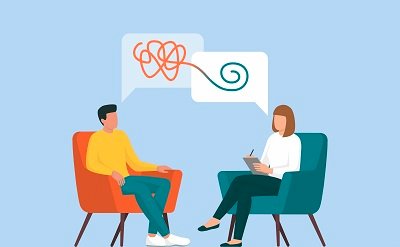Assessment, Assessment, Assessment | Anxiety and

Throughout time, assessment and diagnosis in medicine have been key in the determination and identification of treatment for medical illnesses. No course of treatment will begin without diagnosis and understanding of origin of illness. As far back as the invention of Chinese medicine, tools have existed that are used to identify medical illnesses. In today’s world of medicine, we have all kinds of tests: scientific tests, blood tests, urine tests, neurological tests, MRIs, and CT scans. In the medical field, people cannot move on to treatment without a proper diagnosis. It would be illogical, wrong, and considered malpractice. So why is it that, in the mental health field, it happens far too often?
In the past three decades, there have been an enormous amount of empirically proven assessment tests that are shown to be accurate in diagnostic tests. These assessments are taught at most academic institutions and are available online. And yet far too often are not being applied in practice.
Globally, for centuries there has been a stigma associated with psychological and neurological ailments. People who suffer from a medical illness can identify an organ that hurts and separate themselves from that organ. A person with a headache can identify that the pain is caused by their head. However, those with mental illnesses have a blurred line and cannot separate themselves from the problem. Rather than treating it like any other affliction, they believe that something is wrong with their personality. And often blame themselves.
At the beginning of the twentieth century, there were no scientifically or empirically proven methods that were able to determine psychiatric and psychological illnesses and separate them from medical illnesses. However, today there are rapidly developing psychological and psychiatric tools that have been scientifically proven and have been disseminated by and for mental health professionals. These tools are utilized to treat people following precise diagnoses based on the attestation of diagnostic criteria.
Obsessive Compulsive Disorder (OCD) is not an illness, it is a syndrome. According to research and medical data, it is a constellation of different sub-illnesses gathered and accruing simultaneously as a spectrum. Therefore, OCD does not occur alone, but rather with one, two, and sometimes up to five different OCD spectrum anxiety disorders/comorbidities (such as BDD, panic disorder, eating disorders, etc.). According to ADAA, forty percent of Americans at present are afflicted by co-occurring anxiety disorders such as generalized anxiety disorder, social phobia, panic disorder, PTSD, simple phobias, OCD, and Obsessive-Compulsive spectrum disorders—setting aside depression and mood disorders.
In September of 2022, in a nod to the nation’s pressing mental health crisis, a US task force made up of a group of influential medical experts recommended, for the first time, that all adults under the age of 65 get screened for anxiety. The draft recommendation is designed to help primary health clinicians identify early signs of anxiety using screening methods.
My disbelief is regarding how specialists who reside on the boards of major national and international conferences have fallen into a pattern of failing to administer diagnostic tests and subsequently misdiagnosing their patients. These individuals have been extensively trained to use various diagnostic assessments, which are based on empirical evidence, so why still are they failing to properly assess the patient? The only assumption I can form, is they are not using the tools given to them to their fullest capacity, rather they haphazardly administer and diagnose.
This issue of not using proper diagnostic methods should be prioritized because of the importance of public mental health. My previous recommendations have centered on treating severe OCD refractory treatment and anxiety. Furthermore, to apply various scientifically proven research methodologies in the treatment of adolescents and adults. My question does not intend to separate the medical from the mental, as they are intertwined. Rather, I advocate for the initial assessment to be 500 questions, to be
extremely thorough, and last two to five hours with the administration of MINI-International Diagnostic Neuropsychiatric Interview. This specific testing should be done to determine the diagnosis and eliminate the chances of misdiagnosis. I recommend all of this take place in person, under the supervision of a licensed professional. Many are aware, that the Westwood Institute has been advocating for and administering an extensive initial assessment throughout the past three decades. We use MINI-international diagnostic neuropsychiatric testing to determine a precise diagnosis, further recommending the usage of SKID or ADIS as assessment tools.
In conclusion: Remember- assess, assess, assess!
For additional information, please visit: hope4ocd.com
The Westwood Institute for Anxiety Disorders, CA, United States
Eda Gorbis, Ph.D, LMFT
Jason Charchan BA,
Alex Gorbis MA,
Source link
#Assessment #Assessment #Assessment #Anxiety

